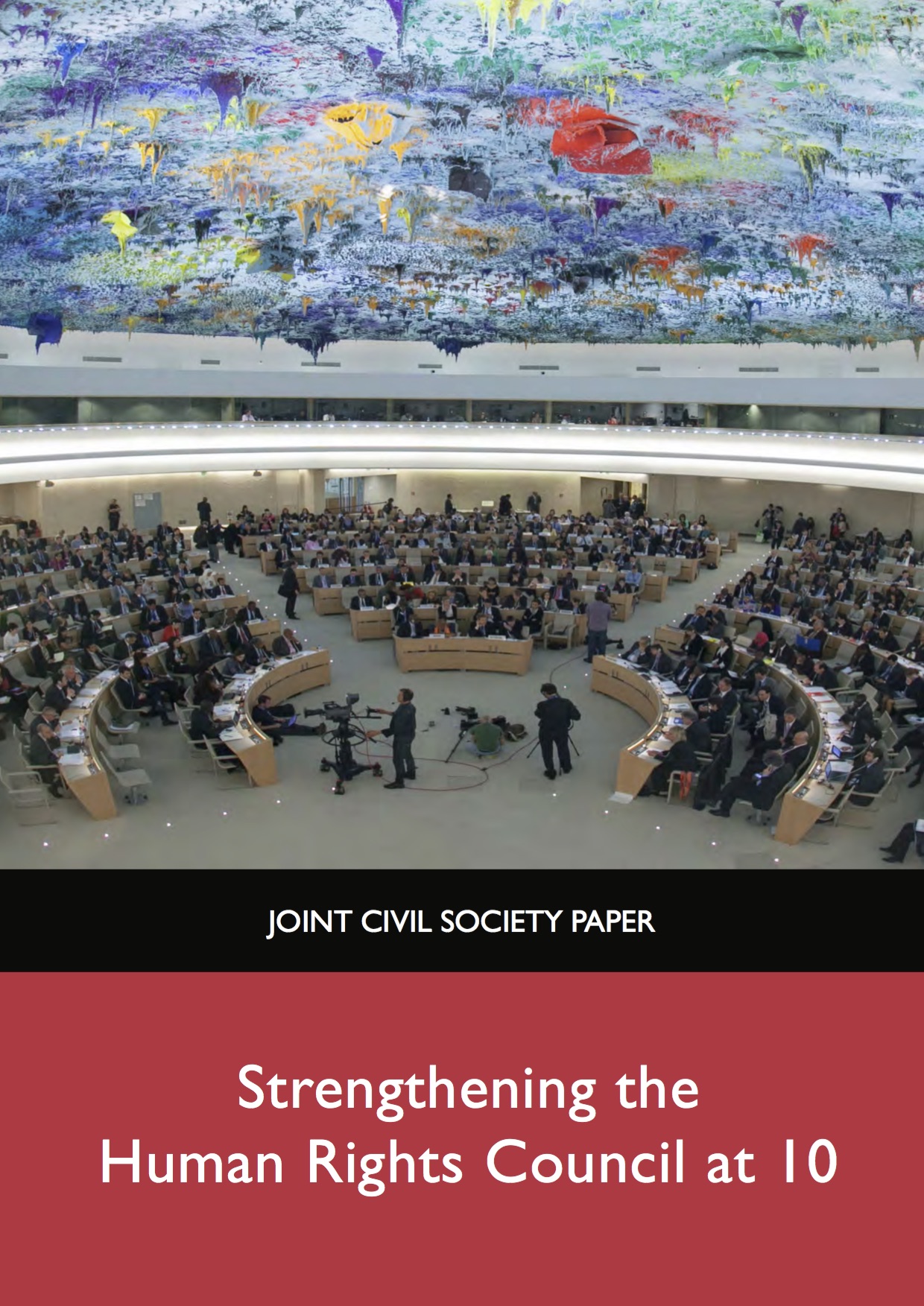This joint civil society paper has been prepared by 20 leading international, national and regional non-governmental organisations, on the occasion of the United Nations Human Rights Council’s 10th Anniversary.
The paper provides concrete recommendations for short- and medium-term steps that would enhance the Council’s ability to better fulfil its mandate.
The impact and achievements of the HRC over the past decade should be measured against its mandate to promote and protect universal human rights, and address situation of violations of human rights, including gross and systematic violations.
The proposals included in this paper would contribute to moving towards a vision of a Council where:
- Its outputs have a direct and positive impact on the behaviour of States and non-State actors with regard to human rights,
- Serious human rights situations and violations are addressed in a timely, substantive and principled manner;
- A diversity of civil society representatives and human rights defenders (HRDs) have a safe and central role in the Council’s work, and are able to contribute substantively and influentially to this work; and
- There is greater adherence to HRC membership standards, including in relation to cooperation with the HRC and its mechanisms, and ‘upholding the highest standards of human rights’ at home, internationally and at the HRC itself.

